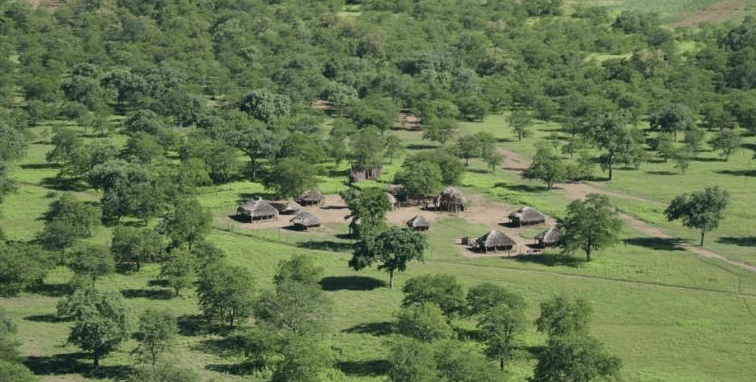- Home
- Worldwide
- CIRAD worldwide
- Projects
- ProSuLi project
Promoting sustainable livelihoods in transfrontier conservation areas in Southern Africa - ProSuLi

Dwellings on the edge of the unfenced Gonarezhou national park in Zimbabwe, in the Great Limpopo transfrontier conservation area © A. Caron, CIRAD
Issues
Transfrontier conservation areas (TFCAs) are made up of complex socioecological systems combining protected areas and communal areas. A wide range of local stakeholders (local communities, NGOs, government services, private sector, researchers) have unequal access to natural resources (water, pastures, wildlife, timber) in a governance system that includes, among others, provincial capitals, national government, and international wildlife regulations. Developing the livelihoods of local communities within TFCAs is a key element of their sustainability. But today, in most of these areas, conservation objectives are given priority over food security and the socioeconomic development of communities. The focus is too often on support for community tourist activities, generating income for a very small number of people and forcing others to turn to illicit activities (poaching), while livestock breeding and agriculture remain the pillars of local culture. Livelihoods therefore need to be diversified by adapting traditional practices to new environmental contexts (presence of protected areas, climate change) and developing sustainable ways of using natural resources. In strengthening a local, inclusive and fair system of governance between local actors, it is thus essential to build a shared vision of a sustainable TFCA, capable of reconciling the wellbeing of populations and the protection of habitats.
Description
The project is based on a participatory approach: all of the activities to be implemented for the equitable and sustainable management of natural resources are designed by the communities. Initially, workshops are organized, during which conservation stakeholders and local communities work together to define possible “futures”, through forward-looking approaches. Based on these discussions about the factors that influence livelihoods, in each of the project sites, the local communities prioritize the activities to be implemented (construction of watering points, collective management of livestock herds, veterinary services, etc.). These activities are then set up and monitored using indicators co-developed by the stakeholders. The goal is that local stakeholders will be able to use these indicators to guarantee the good governance, ownership and sustainability of activities, in a bottom-up approach to development.
The project is founded on three key principles:
- The sustainability of multi-stakeholder collaboration processes as a tool for local governance;
- The representativeness of the stakeholders involved in these processes to ensure that all, especially the most vulnerable, can benefit from them;
- Consideration of the history and experience of each socioecological system in the implementation of new initiatives.
Expected impacts
- By gaining more responsibility in the management of their territory and the capacity to use natural resources effectively and sustainably themselves, local communities will have become more autonomous.
- Stakeholders in TFCAs will have implemented a paradigm shift by adopting integrated approaches that combine both conservation objectives and the need for socioeconomic development.
Contract partners
Okavango Research Institute (Botswana), Eduardo Mondlane University (Mozambique), University of Zimbabwe (Zimbabwe), National University of Science and Technology (Zimbabwe), CNRS (France), Biohub Trust (Zimbabwe)
























